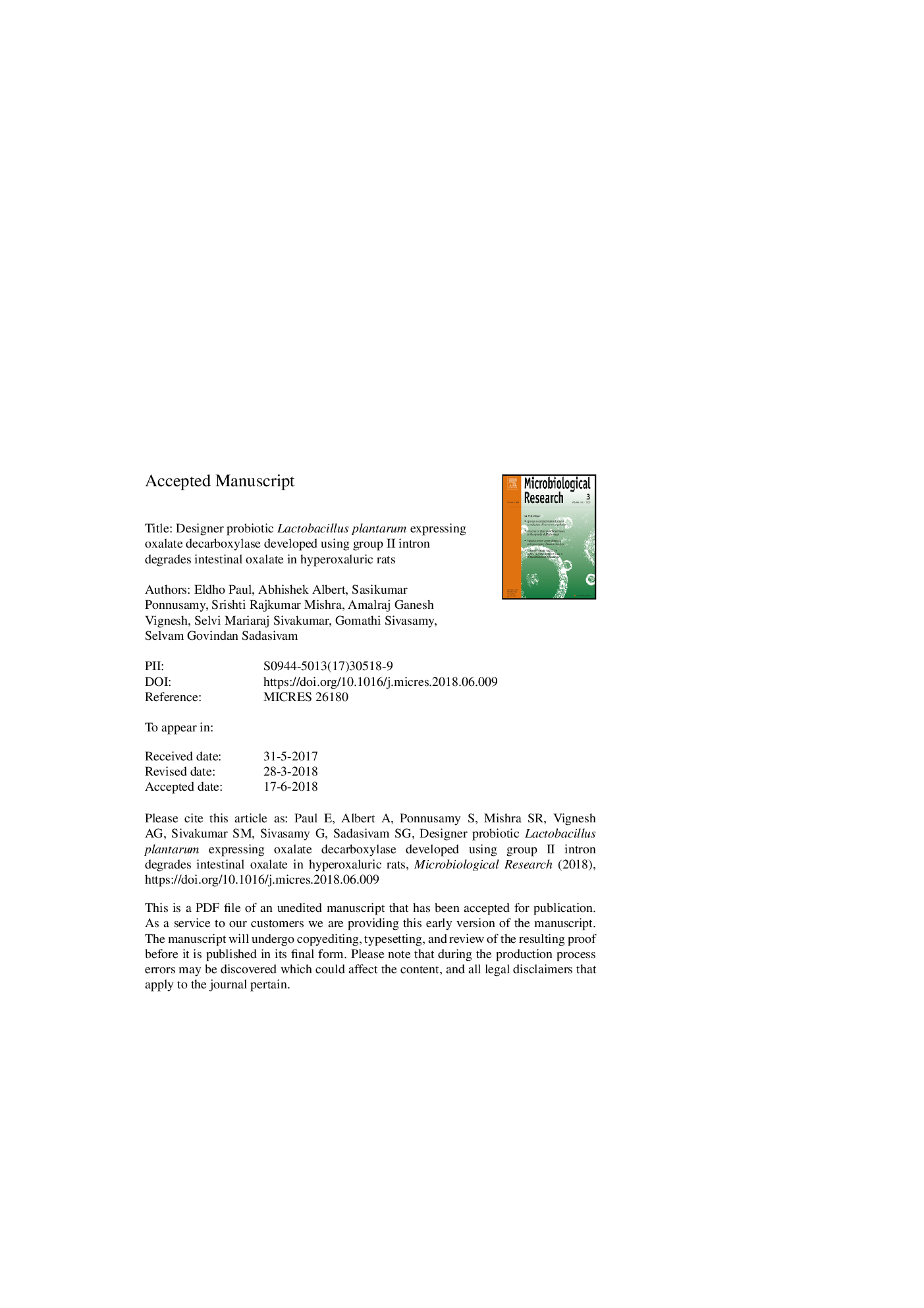| کد مقاله | کد نشریه | سال انتشار | مقاله انگلیسی | نسخه تمام متن |
|---|---|---|---|---|
| 8422655 | 1545960 | 2018 | 32 صفحه PDF | دانلود رایگان |
عنوان انگلیسی مقاله ISI
Designer probiotic Lactobacillus plantarum expressing oxalate decarboxylase developed using group II intron degrades intestinal oxalate in hyperoxaluric rats
دانلود مقاله + سفارش ترجمه
دانلود مقاله ISI انگلیسی
رایگان برای ایرانیان
کلمات کلیدی
موضوعات مرتبط
علوم زیستی و بیوفناوری
بیوشیمی، ژنتیک و زیست شناسی مولکولی
بیوتکنولوژی یا زیستفناوری
پیش نمایش صفحه اول مقاله

چکیده انگلیسی
Increased intestinal absorption of oxalate causes hyperoxaluria, a major risk factor for kidney stone disease. Intestinal colonization of recombinant probiotic bacteria expressing oxalate-degrading gene (OxdC) is an effective therapeutic option for recurrent calcium oxalate (CaOx) stone disease. Therefore, we aimed to develop food-grade probiotic L. plantarum secreting OxdC using lactococcal group II intron, Ll.LtrB and evaluate its oxalate degradation ability in vivo. Male Wistar albino rats were divided into four groups. The rats of group I received normal rat chow and drinking water. Groups II, III and IV rats received 5% potassium oxalate containing diet for 28 days. Groups III and IV rats received L. plantarum and food-grade recombinant L. plantarum respectively from 15 to 28 days. Biochemical parameters and crystalluria were analysed in 24â¯h urine samples. At the end of experimental period, rats were sacrificed; intestine and kidneys were dissected out for colonization studies and histopathological analysis. Herein, we found that the administration of recombinant probiotics significantly reduced the urinary oxalate, calcium, urea, and creatinine levels in rats of group IV compared to group II. Furthermore, colonization studies indicated that recombinant probiotics have gastrointestinal transit and intestinal colonization ability similar to that of wild-type bacteria. In addition, gene expression studies revealed down-regulation of OPN and KIM-1 among group IV rats. Histopathological analysis showed less evidence of nephrocalcinosis in group IV rats. In conclusion, the study demonstrates that food-grade L. plantarum secreting OxdC is capable of degrading intestinal oxalate and thereby prevent CaOx stone formation in experimental rats.
ناشر
Database: Elsevier - ScienceDirect (ساینس دایرکت)
Journal: Microbiological Research - Volume 215, October 2018, Pages 65-75
Journal: Microbiological Research - Volume 215, October 2018, Pages 65-75
نویسندگان
Eldho Paul, Abhishek Albert, Sasikumar Ponnusamy, Srishti Rajkumar Mishra, Amalraj Ganesh Vignesh, Selvi Mariaraj Sivakumar, Gomathi Sivasamy, Selvam Govindan Sadasivam,